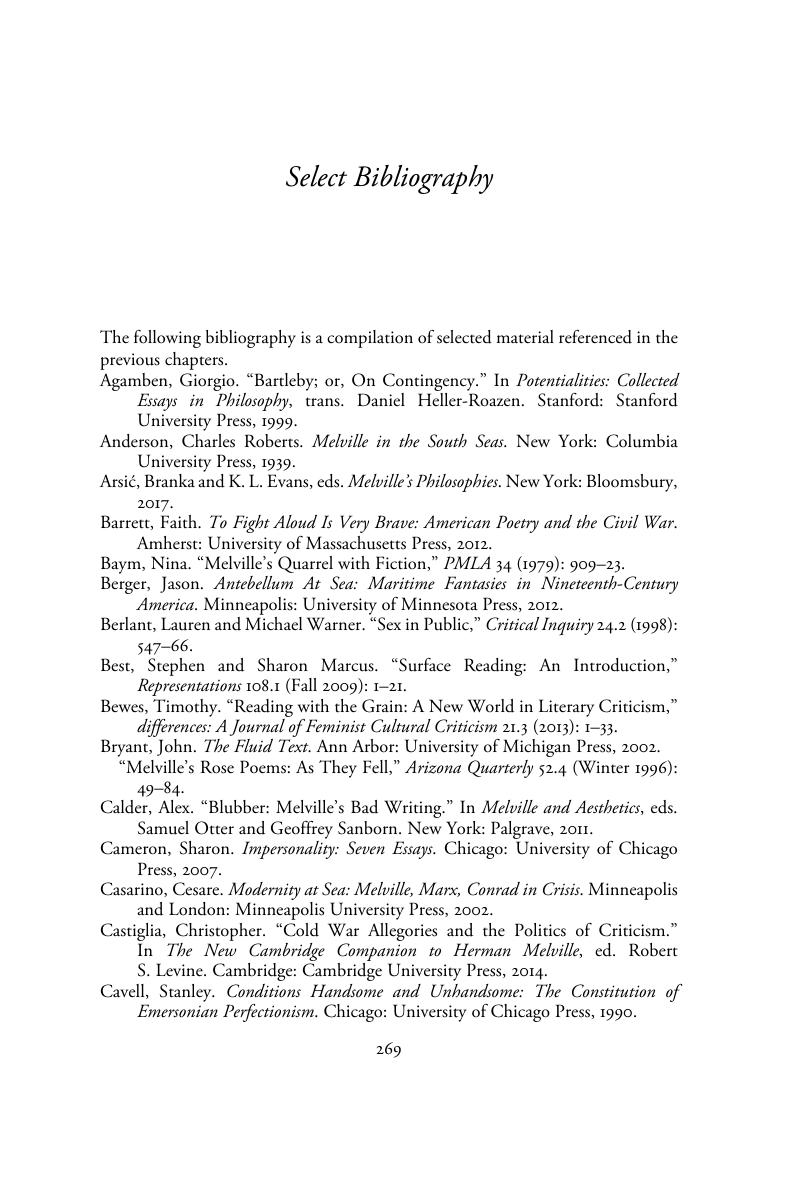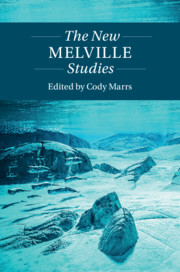Book contents
- The New Melville Studies
- Twenty-First-Century Critical Revisions
- The New Melville Studies
- Copyright page
- Contents
- Notes on Contributors
- Acknowledgments
- Abbreviations for Texts Cited
- Chapter 1 Introduction: Melville Studies, Old and New
- Part I Feeling with Melville
- Part II Thinking with Melville
- Notes
- Select Bibliography
- Index
- References
Select Bibliography
Published online by Cambridge University Press: 01 March 2019
- The New Melville Studies
- Twenty-First-Century Critical Revisions
- The New Melville Studies
- Copyright page
- Contents
- Notes on Contributors
- Acknowledgments
- Abbreviations for Texts Cited
- Chapter 1 Introduction: Melville Studies, Old and New
- Part I Feeling with Melville
- Part II Thinking with Melville
- Notes
- Select Bibliography
- Index
- References
Summary

- Type
- Chapter
- Information
- The New Melville Studies , pp. 269 - 274Publisher: Cambridge University PressPrint publication year: 2019



